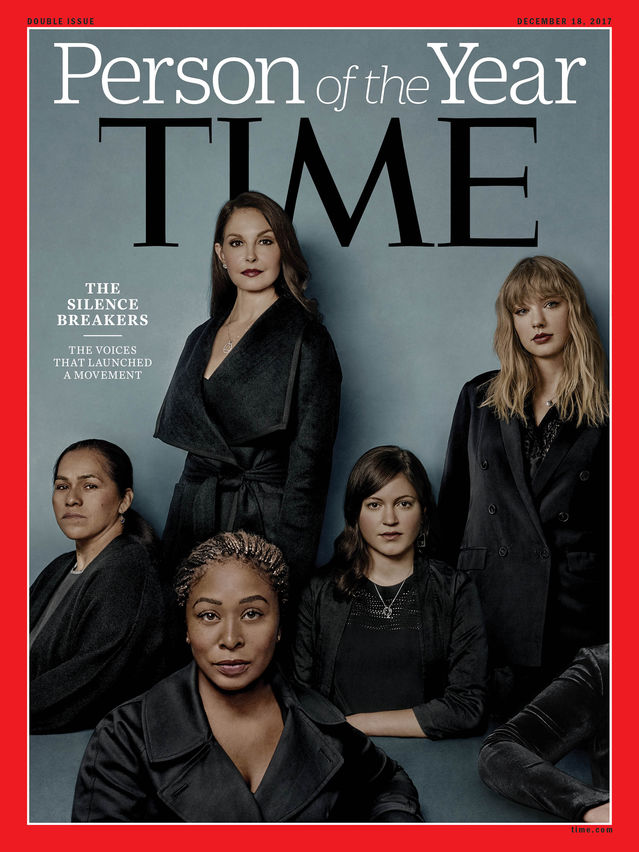
Many good men I know find it hard to believe that sexual harassment is as prevalent as it appears to be. Why are they so incredulous? I assume it’s because they have not indulged themselves in this way, for which I commend them.
But there’s another obvious reason: women’s historic silence on this issue. Of course, we all remember Anita Hill’s testimony (1991) at the confirmation hearings of Clarence Thomas as a nominee for the Supreme Court and the disbelief accorded her story at that time. The public shame she endured served as an effective deterrent to professional women for years to come.
Who would want to suffer such public scrutiny or humiliation? Not to mention the possible derailing and/or devastation of her career? Most ordinary women (myself included) would not.
Yet I recognized what she said in terms of my own experience, as I imagine many other women did at that time.
Women who entered the workforce in the late 1960s and after have all experienced some degree of workplace harassment, whether subtly suggestive, physically unpleasant, or coercive. Women of my generation shared our stories in private, warned each other about whom to avoid, and mostly, tried to laugh it off. What else could we do? In the absence of workplace procedures and state or federal legislation that would consider a complaint, we were legally orphaned.
And then there was the issue of power. The men who took verbal and/or physical liberties with us were our superiors, often our supervisors, who had influence over our employment. In my case, the suggestive comments made to me as an untenured assistant professor at a major research university in the midwest were made by associate or full professors, all of whom would vote on my tenure and promotion. I knew enough not to express overt anger, much less to “punch them in the face,” as one younger male friend offered as an appropriate form of rebuttal.
Few women are a physical match in an encounter with a larger, more powerful male. I’d suggest rather, that when push comes to shove, such a woman think of kneeing the guy in the groin—a tactic I learned in the 1970s from a 6’4” African-American male who taught a Women’s Self-Defense Class at my university. I am grateful that I never had to resort to such an extreme tactic.
But I was once assaulted in my early twenties by a “date” whom I did not fear until he pinned me down on his metal dormitory bed, trying to force me to have sex with him. I was saved by the presence of others in the vicinity, who would have intervened if I’d had the courage to scream. I didn’t, out of sheer embarrassment and my 1950s upbringing as a “nice” girl, raised to be polite and not to make a “fuss.”
I’d never heard the word “rape,” much less understood what it meant, but was desperate to escape. I did, but I feared that he would pursue me, which he did, calling me a me “witch” and telling me that what happened to girls like me was that they “got their heads chopped off.” This sounds extreme, I know, but it actually happened. I got away from this guy but was terrified of him for months afterward.
If you want to read a fuller account of this story, you can click here where I describe my experience in more detail.
What prompted me to write about this long-ago encounter was the debate about the prevalence of sexual assault on the university campus. I’d been teaching a memoir writing class that year, in which I gave my students the option of writing either a research paper on the books we read or to compose a personal memoir. They all opted for the memoir assignment.
One young woman wrote about her experience of “friend rape.”
She’d known this guy for some time and trusted him but he forced her into sex, saying that she was used to this, so it was no big deal. It is true that she was sexually experienced but she did not consent to this encounter. What she did as a result was (to me at least) remarkable.
She went to her brother and confided what had happened. He believed her, recruited a group of his friends, and went to the perpetrator’s apartment. Together, they beat the s--t out of him.
There was silence in the room as my student read her story and then what I can only describe as exhilaration from male as well as female students. She’d balanced the scales without resorting to the tedious and mostly ineffective justice system. Good for her!
I am telling you this now not as an instruction for how to handle sexual harassment, much less rape, but rather to point to an example of female heroism, to which I was a personal witness. Unlike me in my early twenties, my student (also in her early twenties) took action.
So, too, are the women who are coming forward to “out” the men in power who have taken liberties with their bodies: groping them, forcibly kissing them, and sometimes worse. Those who give their names and/or consent to being interviewed are walking in the footsteps of Anita Hill, who broke the workplace silence for us all.
One more thing: When a man categorically denies the allegations of such women, it is the women whose words are questioned—not those of the men. Hence, or so it seems, the willingness on the part of some to support a credibly accused sexual harasser like Roy Moore (and our own President) over the testimony of the women who describe in detail how they suffered at their hands.
(Author Note: I am aware that this is a controversial topic and am willing to respond personally to anyone who chooses to comment.)




